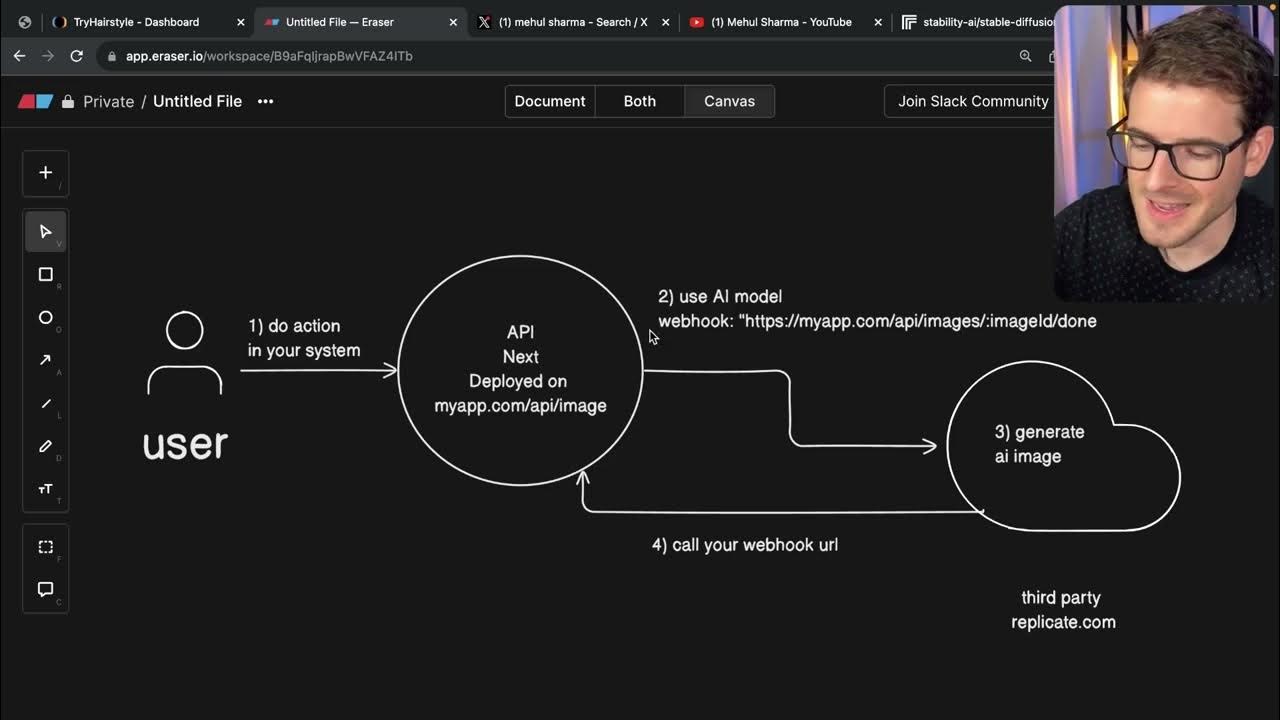What is a Webhook? #automation #softwareintegration #webhook
Summary
TLDRThis video explains the concept of webhooks, highlighting their role in enabling real-time, event-driven communication between web applications. Unlike APIs, which require data requests, webhooks automatically notify applications when specific events occur, such as a user submitting a form or starting a chat. The video demonstrates how setting up a simple POST request can send data to a webhook URL, which can then be processed in various ways. It also showcases the use of tools like Cycler to integrate webhook data across multiple systems, triggering automated workflows that streamline processes and enhance efficiency across platforms.
Takeaways
- 😀 Webhooks are used for event-driven integrations between web applications.
- 😀 Webhooks allow for real-time data transfer between applications when specific events occur.
- 😀 Unlike APIs, which require requests for data, webhooks notify you automatically when certain events take place.
- 😀 Setting up a webhook only requires creating a single POST request on the sending side to send data to a URL.
- 😀 The data sent through webhooks, such as form submissions, can be processed in various ways on the receiving end.
- 😀 Webhooks can be triggered by user actions, like initiating a chat or filling out a form on a website.
- 😀 Submitted data from webhooks can be integrated with systems like CRMs or marketing platforms.
- 😀 Webhooks help synchronize data and processes across multiple platforms through an integration workflow.
- 😀 A webhook-triggered workflow starts automatically when an event occurs in your system, activating a series of processes.
- 😀 Cycler can help streamline the process of sending webhook data into multiple systems simultaneously.
- 😀 Webhooks are a powerful tool for automating data flow and integrating systems based on real-time events.
Q & A
What is a webhook?
-A webhook is a tool used for event-driven integrations that allows web applications to communicate with each other in real-time by automatically sending data when specific events occur.
How does a webhook differ from an API?
-The key difference is that an API requires you to request data, whereas a webhook automatically notifies you when certain events take place, providing real-time updates without manual requests.
What is required to implement a webhook?
-Implementing a webhook typically requires setting up a single POST request on the sending application, which sends a packet of data to the webhook URL whenever the specified event occurs.
What kind of events can trigger a webhook?
-Webhooks can be triggered by a variety of events, such as a user filling out a form on a website, initiating a chat, or any other event defined in the sending application.
What happens to the data sent by a webhook?
-The data sent by a webhook can be processed in multiple ways, such as being added to a CRM, marketing system, or any other platform where it needs to be tracked or acted upon.
How can Cycler be used with webhooks?
-Cycler can send webhook data into one or multiple systems and, when combined with an integration workflow, can trigger automated processes across multiple platforms whenever an event occurs.
What is the main advantage of using webhooks?
-The main advantage of using webhooks is real-time data delivery and automation, which allows systems to respond immediately to events without requiring manual data requests.
Can webhooks handle multiple systems at once?
-Yes, webhooks can be configured to send data to multiple systems simultaneously, especially when used with tools like Cycler and integration workflows.
Why are webhooks important for integration workflows?
-Webhooks are important because they act as triggers for integration workflows, starting automated processes whenever specific events happen in the system, ensuring smooth, real-time operations.
What types of applications benefit most from webhooks?
-Applications that rely on real-time data updates, such as CRMs, marketing platforms, customer support systems, and analytics tools, benefit most from webhooks because they allow seamless communication and automated processing of events.
Outlines

This section is available to paid users only. Please upgrade to access this part.
Upgrade NowMindmap

This section is available to paid users only. Please upgrade to access this part.
Upgrade NowKeywords

This section is available to paid users only. Please upgrade to access this part.
Upgrade NowHighlights

This section is available to paid users only. Please upgrade to access this part.
Upgrade NowTranscripts

This section is available to paid users only. Please upgrade to access this part.
Upgrade NowBrowse More Related Video

API Web Services Beginner Tutorial 1 - Introduction - What is a Web Service

ТЕСТИРОВАНИЕ ВЕБ - Знакомимся с WebSocket. Еще один протокол, еще один вид запроса !

2. Motivations and Customer Use Cases | Apache Kafka Fundamentals

What is Event Driven Architecture (EDA)?

What is a Web Service? And why is it called a Web Service?

This is why webhooks are important
5.0 / 5 (0 votes)